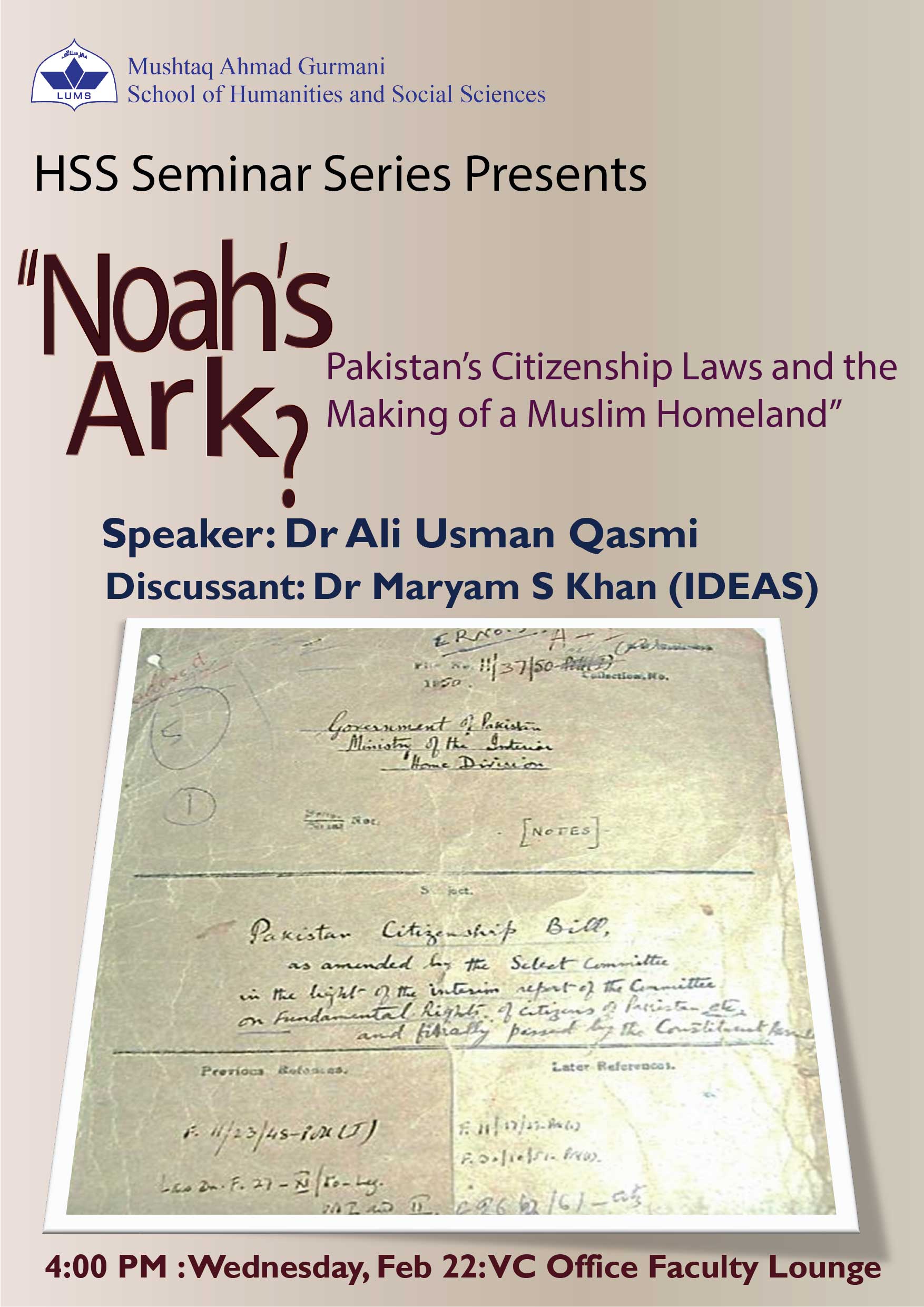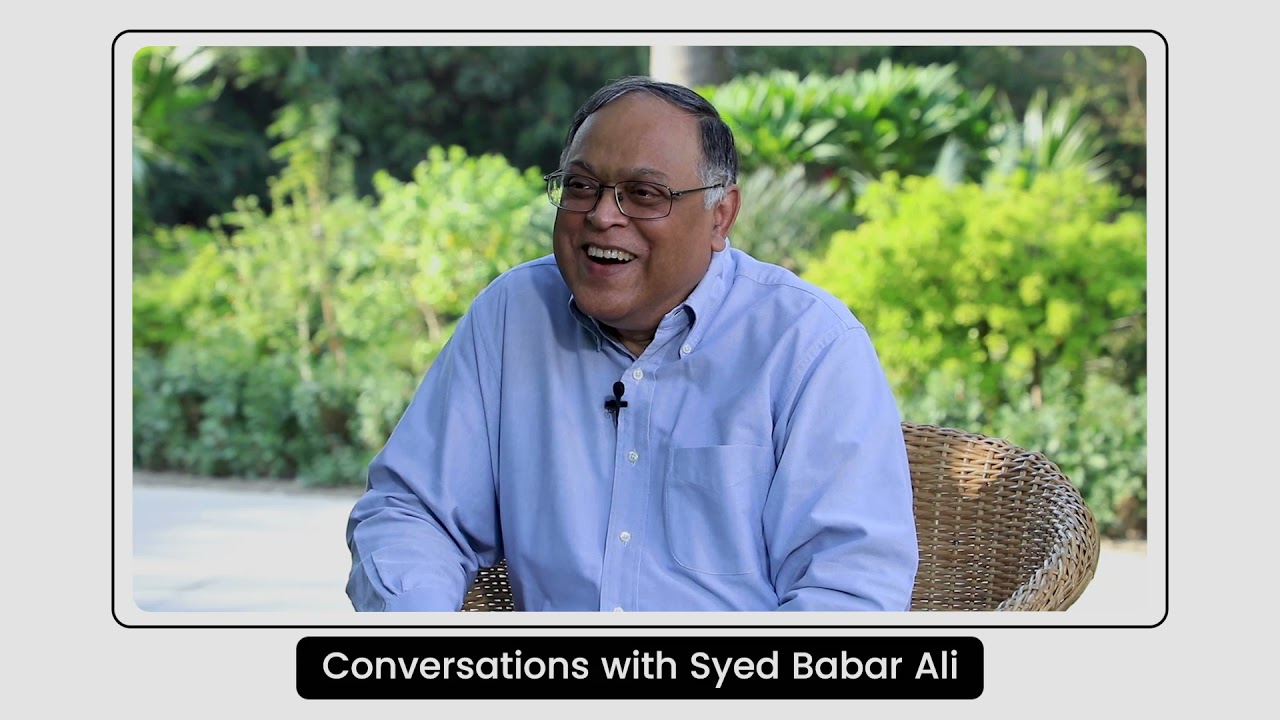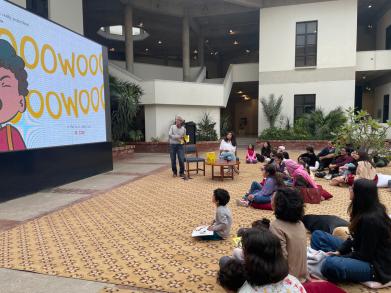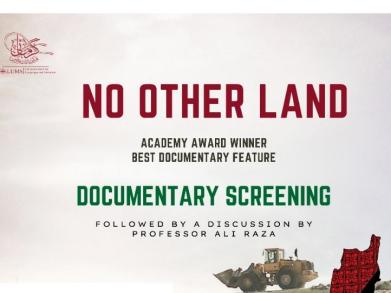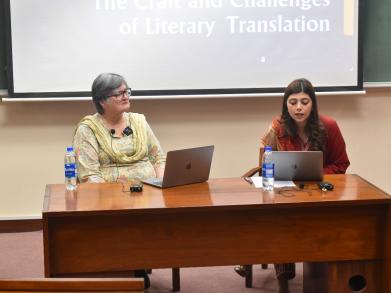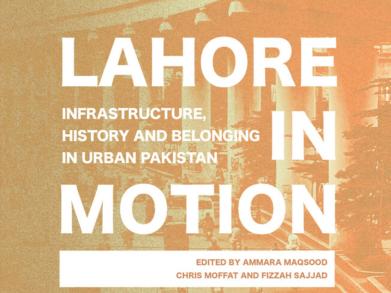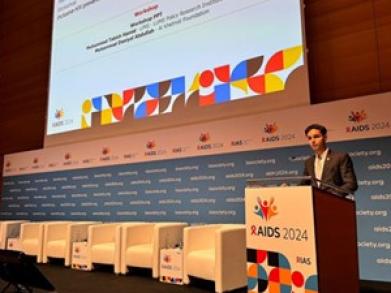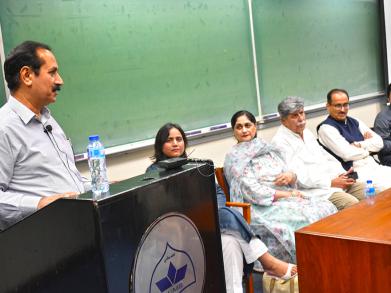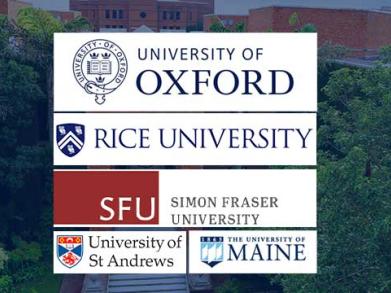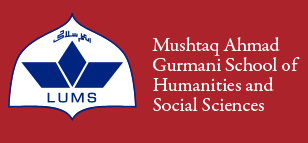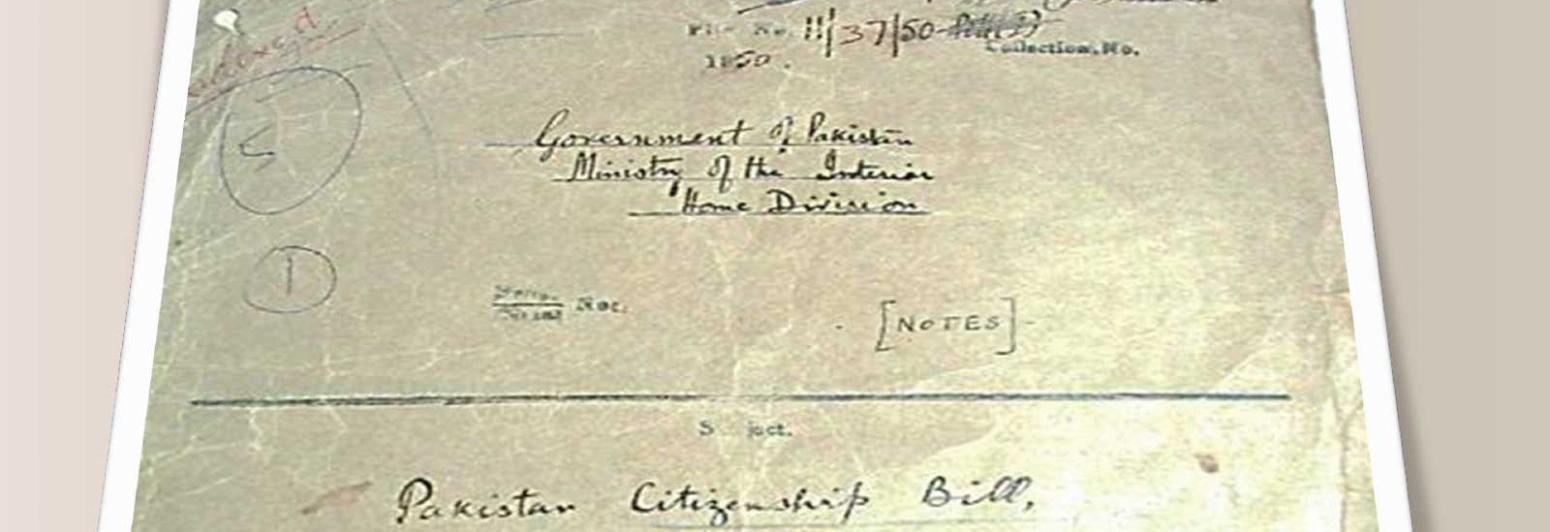
to
Bio
Born and raised in Lahore, Dr. Ali Usman Qasmi (Associate Professor of History, Lahore University of Management Science) is a historian of modern South Asia. He has published extensively in his area of expertise, including two monographs – Questioning the Authority of the Past: The Ahl al-Quran Movements in the Punjab, and The Ahmadis and the Politics of Religious Exclusion in Pakistan (winner of Karachi Literature Festival Peace Prize). Along with several journal articles and chapters in academic works, he has co-edited three volumes, including Muslims Against the Muslim League: Critiques of the Ideas of Pakistan. He has previously been the recipient of the Newton International Fellowship for postdoctoral research. Since 2012, Qasmi has been teaching history at the LUMS University’s School of Humanities and Social Sciences.
Abstract
The partition of the subcontinent in 1947 resulted in the forced migration of displaced Hindu, Muslim or Sikh communities across the newly constituted Dominions of India and Pakistan. Both countries came up with what Himanti Roy calls document regime from September 1947 onwards to manage control of movements across the border and the making of Uditi Sen's Citizen Refugee. Even with such documentary requirements as visas, emergency permits, India-Pakistan-specific passports, and migration certificates, the postcolonial states – in their different ways impacted by the specificity of their political structures and ideological frameworks – were only able to manage the movement of bodies in a limited sense.
My paper provides a detailed historical analysis of the various legislative measures and bureaucratic practices whereby Pakistan drew upon the body of the migrant to create the legal category of a citizen. As I will argue in this paper, it is on the body of the refugee variously encoded in the provisions of law as a migrant or stateless subject, and situated in a moral language of history and emotions as a muhajir, that the state operated to cohere a unity out of ambiguity. As I will show, the transformation of migrant, refugee, and muhajir to a citizen, and later or simultaneously as a national, was a central part of the state-making process. I take 1947 not as a single moment of rupture, but the onset of a series of ruptures – hence the 'long Partition' as Vazira Zamindar calls it. These moments opened up questions about who belongs and who doesn't, and who excludes from what and how? Using the 'foundational moment' of 1947 as a point of entry, I would provide an analysis of the extensive legal regime whereby the state formulated inclusionary and, what is equally important to understand, exclusionary criteria of membership for citizenship. In particular, I would provide details of the Pakistani state's unwritten codes of inclusion/exclusion whereby Pakistan was converted into a veritable Noah's Arc for the Muslim refugees – a homeland for South Asian Muslims - while systematically blocking the reentry of non-Muslim refugees into the country.
